#MondayMaterials Episode 26 – Professor Allan Matthews
Meet the Department 28th November 2016
Hi Everyone. Welcome to Episode 26 of #MondayMaterials where we’ll be meeting with Professor Allan Matthews, a member of the Ceramics and Inorganics Research Group here in the School of Materials. Allan is also the Deputy Director of the BP International Centre for Advanced Materials and a Fellow of the Royal Academy of Engineering, so it’s fair to say he has a pretty impressive CV. To find out more about the exciting work he’s involved in, just keep reading:
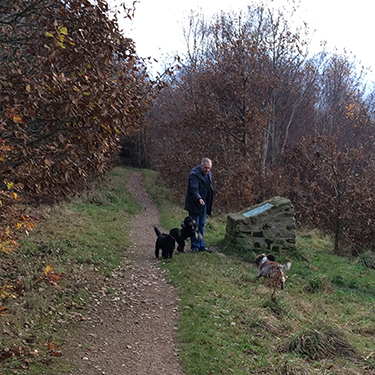 Hi Allan. Thanks for talking to us; it’s great to have you on the blog. Can you start by describing your research, for the layman, in ten sentences or less?
Hi Allan. Thanks for talking to us; it’s great to have you on the blog. Can you start by describing your research, for the layman, in ten sentences or less?
My research area is called Surface Engineering, which comes about because people realise that most products fail because of surface effects. Either by wear, corrosion, fatigue, or seizure. And also, the surface is the part that you can see so it’s important from an aesthetic point of view.
So surfaces have become increasingly important in research over recent years, and in particular we’re looking at what we call plasma-based processes – which are environmentally friendly compared to, for example, traditional coating methods like electro-plating, where you had effluents that had to be discharged into the rivers etc. So we have techniques that are completely environmentally friendly, and, as I said, they’re plasma based.
So you might say, well, what’s a plasma? A plasma is a conducting gas, which basically means that the species we are depositing are ionised. By ionising them we can accelerate them and give them increased energy, so that gives coatings with improved properties such as density, and also better adhesion.
So that’s basically what my area is, just researching Surface Engineering as we call it.
And how can your research benefit the public?
Because of the improvements I’ve just mentioned, i.e. reducing wear, friction, and corrosion, we can create products with better performance. So that directly benefits the public. For example, cars can have lower friction and better fuel consumption.
But also, what I think is that we are improving products for our UK manufacturers and, therefore, there is a jobs benefit. Because products made in the UK with better surface engineering techniques can be sold more effectively around the world. So there’s a jobs benefit for the public.
Another issue is sustainability, because surface engineering can make products more sustainable, we can use materials more effectively; rather than bulk materials which may be scarce, we can just use the scarce material on the surface and a cheaper bulk material. And of course there can be an energy benefit, a sustainability benefit, in that way.
So the public is benefiting in all kinds of ways. I could give you an example. We recently developed a titanium based bearing for Airbus, for an undercarriage, and we were able to replace a steel bronze bearing with a titanium bearing and this took about four hundred kilograms out of the weight of the plane. You’d be amazed at the saving that produces in fuel and reduced CO2 emissions etc. Something like $10million over the life of one plane in fuel savings, just by taking a few hundred kilograms out of the weight. So that, again, benefits the public in various ways. Reduced emissions, lower fares, and better environmental protection as well.
Brilliant. Thanks, Allan – that sounds like some hugely important work. So how did you first get interested in your research area?
Yes, I can tell you exactly how I got interested because it started when I did a final year project as an undergraduate on this coating technique which had been invented in the States. The project supervisor had heard about this, and they were making all sorts of claims for this method – which was called Ion Plating.
The project supervisor said ‘can you prove what they’re saying is true, in terms of the better coating properties and the adhesion?’ And I was able to do that. I developed some methods to look at adhesion and it worked really well and got me interested in it.
But immediately after that I went into industry, after finishing my first degree, and worked at an aerospace company in the UK. And then after a couple of years I got a phone call from my project supervisor saying ‘do you want to come back into academia to carry on research in that technique?’. I decided to do that.
And that’s how my research has evolved, beginning from an undergraduate project. So students now, when they do their project, they may not realise what they’re getting into. It might be defining their career, for the future.
Going back a bit further, then, could you tell us who or what first inspired your interests in science and engineering?
I don’t think I can name one individual, other than perhaps the guy in the States who invented that ion plating process. A guy called Don Mattox, who I now know. He’s quite an old guy now, but he’s still around. And he inspired me, you could say, because of inventing that process.
But I think what inspires me most is trying to improve things – to make things better. And in more ways than one – to make things better, and to make things better. Because we can develop products that, for example, can help in healthcare. And generally, what drives me is how to do the innovative research which provides the innovations for the products which make them work better. And that requires fundamental and applied research.
Moving away from work for a question, could you tell us about your other interests? What do you get up to in your spare time? 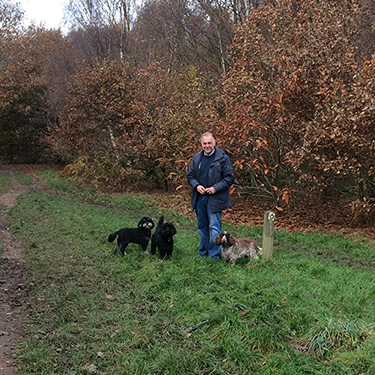
Well we’ve got three dogs, and they occupy a lot of our time. So we spend a lot of time walking with the dogs, either in the Peak District or sometimes taking them to the coast. So that’s one interest.
Another interest is that I’ve been a Man City fan for all of my life, so I’ve supported them through their difficult times – their barren times – and now I’m watching them play great football. I try to get there as often as I can with my son and my grandson, so the future generations are being given the Man City favouritism.
Well there are worst teams to grow up supporting, I suppose. Onto our last question, then. Could you tell us how being here in Manchester helps your work and research?
Well as you can tell, I’m from the North West. You can probably tell from my accent. I spent most of my career on the other side of the Pennines, actually, so it’s great to be back in Manchester. Particularly because there’s a great synergy with what’s going on here and my own research areas.
I’ve already got very involved with the running of the BP International Centre for Advanced Materials (ICAM) and am finding all sorts of opportunities to work in the surface engineering field. And I hope to become more and more involved in the Sir Henry Royce Research Institute, trying to develop the surface engineering and tribology activity. Tribology is the study of wear and friction. So I see all kinds of opportunities in Manchester, in particular with the characterisation, imaging, and analysis facilities here, which are first class. The best in Europe if not the world.
Fantastic. Thanks so much for speaking to us, Allan – it’s great to see that our staff is working on such critical research. Best of luck with it all.
Thanks all for reading, and keep your eyes peeled for more from the blog in the near future.

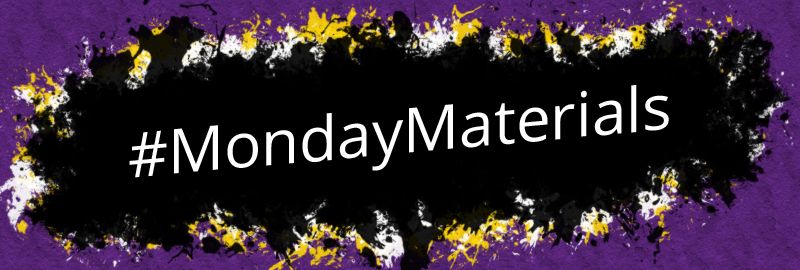
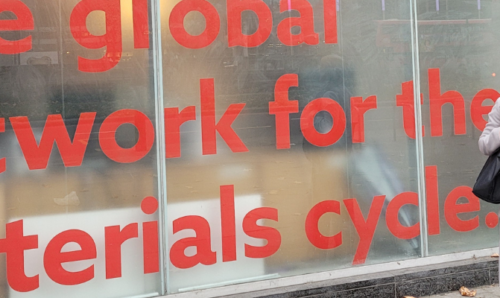
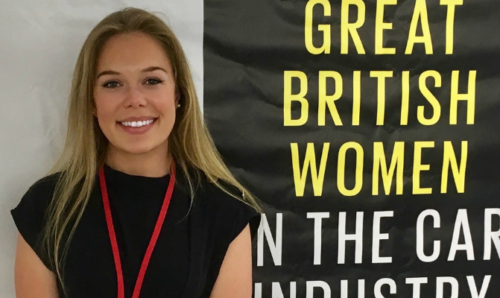

Leave a Reply
You must be logged in to post a comment.